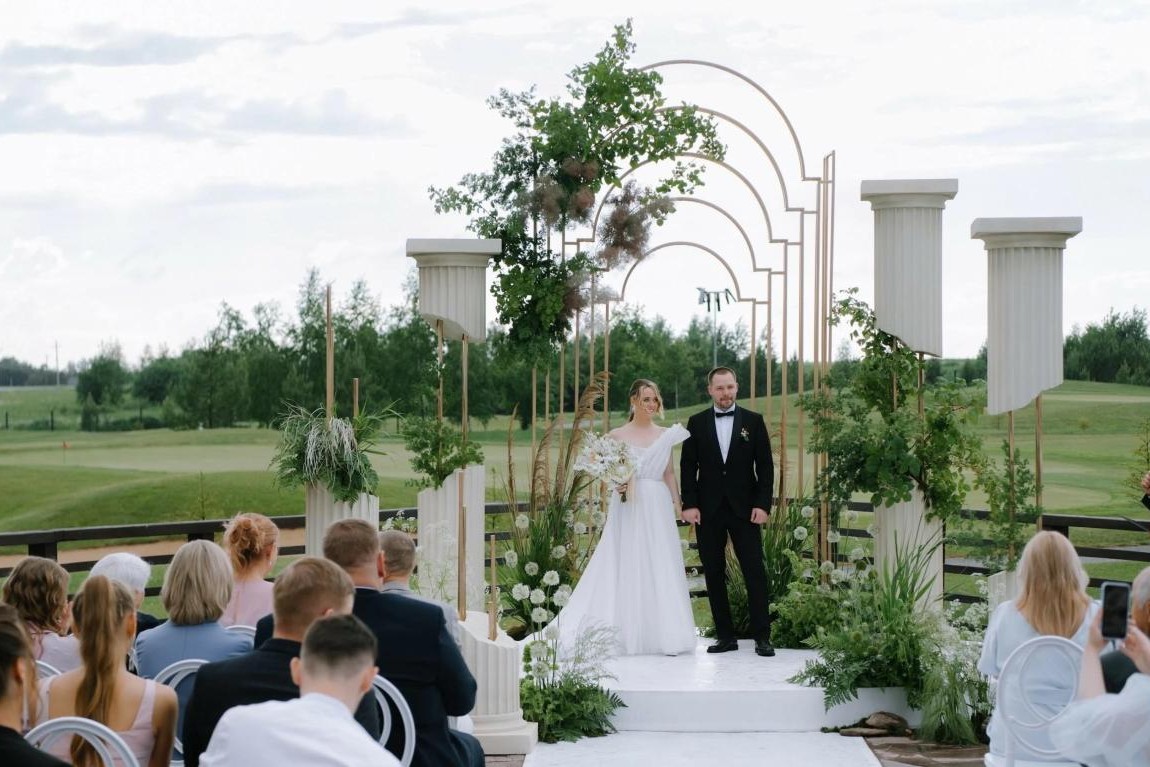A destination wedding ceremony is one of the most romantic and memorable ways to say “I do.” Whether you’re dreaming of a beachside vow exchange, a rustic mountaintop backdrop, or a charming countryside setting, a destination wedding allows couples to create a personalized and unforgettable experience. More and more couples are choosing to host their ceremonies abroad or in picturesque local destinations, combining travel, celebration, and intimacy into one perfect day.
- Types of Wedding Ceremonies
- Benefits of a Destination Wedding Ceremony
- Preparation for a Destination Wedding Ceremony
- Tips for Organizing the Ceremony
- Caring for Your Guests
What kind of wedding do you dream of? A small, intimate gathering or a grand celebration? Are you planning to invite all your friends, family, and acquaintances, or do you want to spend the day with just your closest loved ones? No matter the size of the wedding, the ceremony will always be the most emotional and meaningful part of the day.
It’s hard to imagine a wedding without a ceremony. Even if you are planning a traditional wedding at the local registry office, you can still personalize the ceremony to suit your style!
1. Types of Wedding Ceremonies
Wedding ceremonies can be organized in different ways, each offering a unique experience. Before you decide on the format for your ceremony, it’s essential to understand the options and their specifics.
1.1 Registry Office Ceremony
A registry office ceremony is a standard and formal option. The ceremony follows strict rules, and there’s little room for customization. If you opt for this type of ceremony, you will likely hear a brief and impersonal speech from the officiant. There’s no chance to exchange personalized vows, and the ceremony will usually last no more than 10 minutes. If you prefer a private ceremony, you could visit the registry office only for the legal paperwork, with the actual ceremony taking place elsewhere on your preferred date.
1.2 Official Outdoor Ceremony
In some locations, it is possible to hold an official wedding ceremony outdoors, without the confines of the registry office. However, the venue must be approved by local authorities. While this option doesn’t allow for much flexibility in the ceremony itself, it offers the opportunity to marry in a more scenic and beautiful setting. Some possible venues might include:
- Gardens, beaches, or historic locations
- Wine estates or wineries
- Luxurious restaurants with private terraces
For an extra fee, some venues also offer additional services such as a banquet, refreshments, and decor. The venue must be reserved when submitting your application for the registry office.
1.3 Non-official Destination Ceremony
This is an increasingly popular option where the ceremony takes place in a stunning location without a registry office official present. If you’ve already completed the legal paperwork, this type of ceremony holds personal significance but has no legal binding. However, it is still deeply meaningful and can be tailored entirely to your desires.
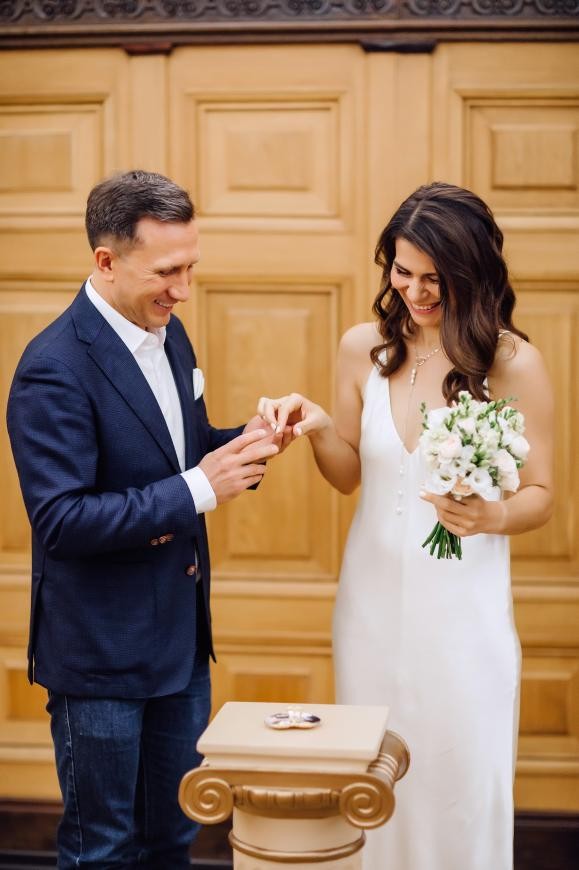

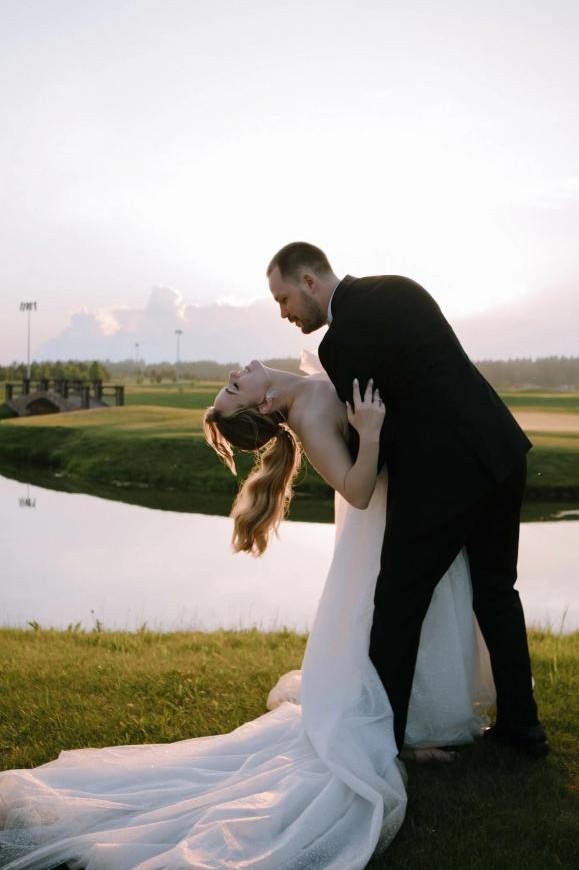
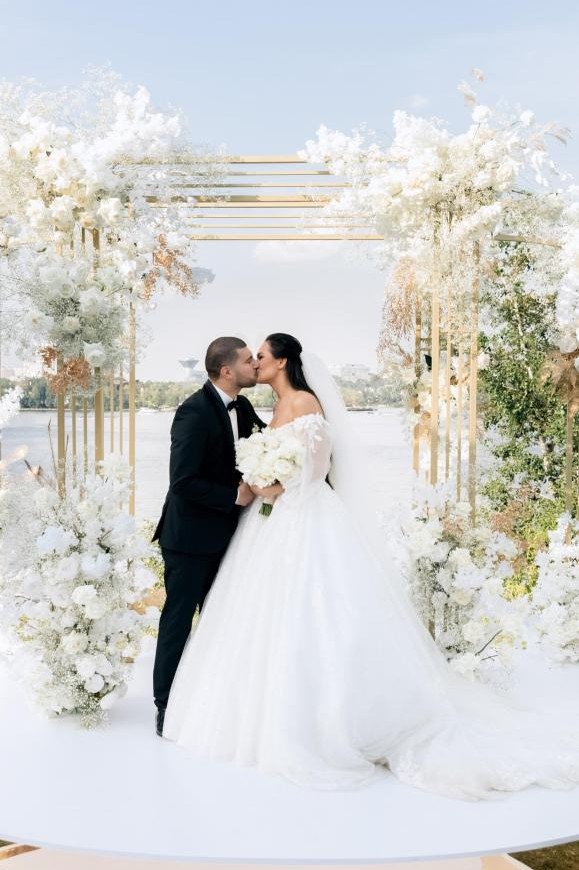
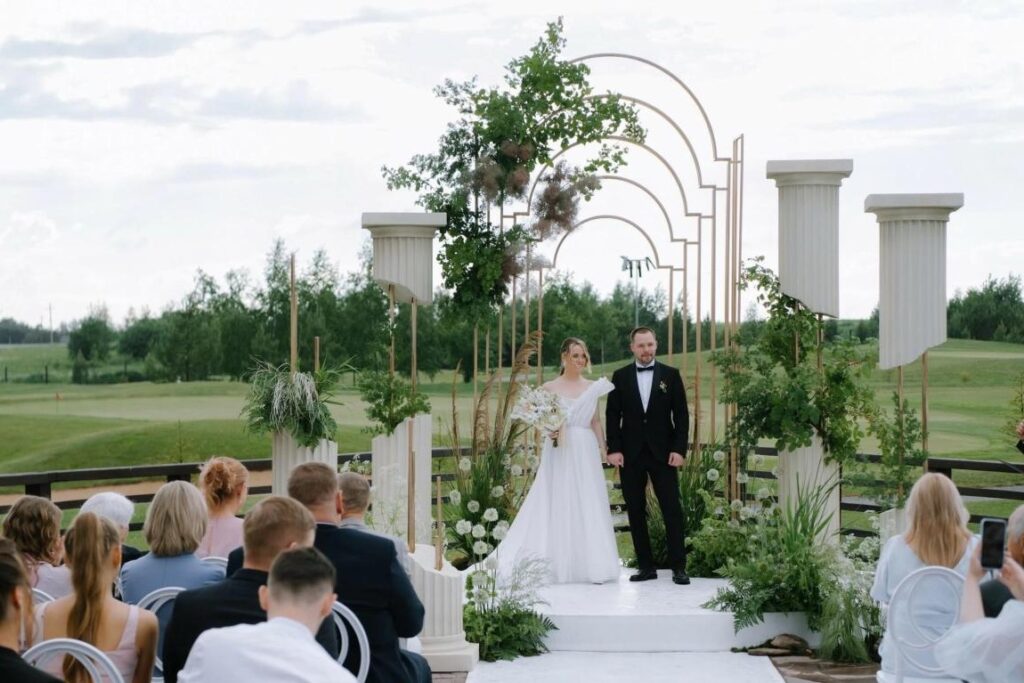
2. Benefits of a Destination Wedding Ceremony
The biggest advantage of a destination wedding ceremony is the level of personalization it allows. Unlike the standardized registry office ceremony, a destination wedding can be customized to match the couple’s personality and the atmosphere they want to create.
The key benefits include:
- Personal vows or speeches
- Creative, customized elements like music or poetry
- A choice of setting that reflects the couple’s unique style—whether on a beach, in a vineyard, or atop a mountain
You can also include surprise elements for each other, like a favorite song, or walk down the aisle with your father or a loved one. After the ceremony, you and your spouse can exit to applause and showered with rose petals, creating a magical moment.
3. How to Prepare for a Destination Wedding Ceremony
Proper planning is key to ensuring your destination wedding ceremony is smooth, memorable, and emotional. Consider every detail in advance to make your big day as special as it should be.
3.1 Choosing the Ceremony Location
The ceremony location is one of the most important aspects. It should be specially designated and clearly defined with:
- Beautiful decor
- Floral arrangements
- Special artistic elements or installations
You could choose a picturesque spot such as a beach with gentle waves, a mountaintop overlooking stunning views, or an ancient tree with a rich history.
3.2 Music Selection
Music plays a huge role in setting the tone of the ceremony. The right songs can evoke the perfect emotional atmosphere, so pay special attention to:
- The entrance of the groom
- The bride’s arrival
- The exchange of rings
- The official declaration of the couple as married
Consider hiring a live band or ensemble if your wedding is intimate and personal, or a string quartet if you’re aiming for a grander celebration. Be sure to choose music that flows smoothly throughout the ceremony for the best emotional impact.
3.3 Ceremony Program
Typically, the ceremony lasts around 15 minutes and includes:
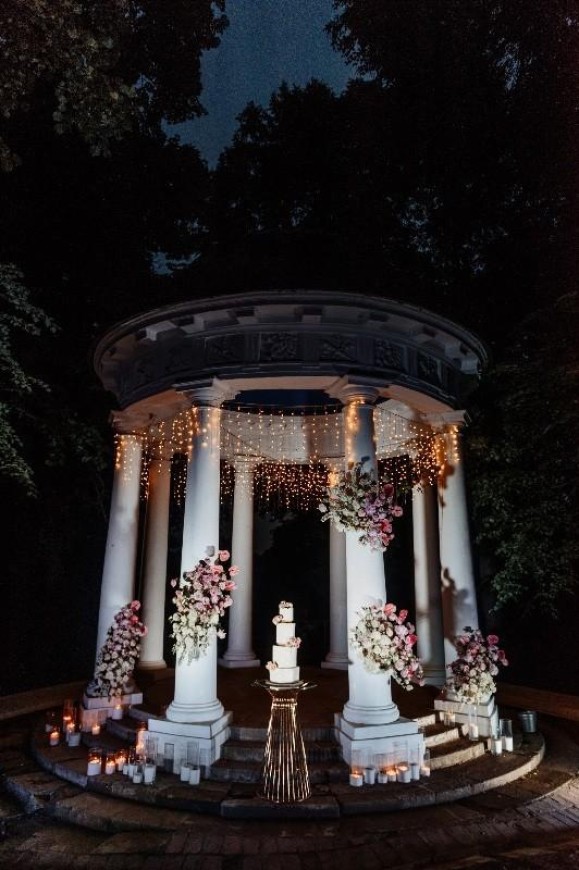
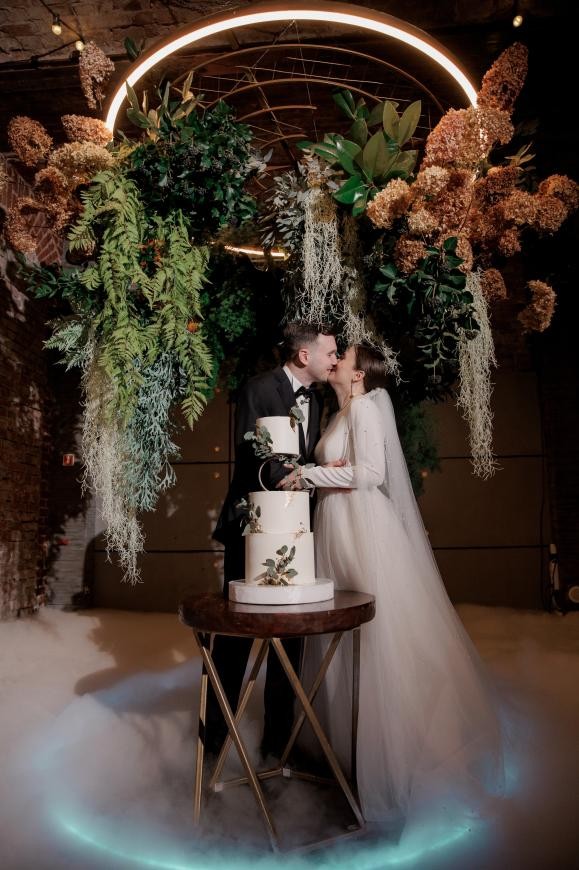

- A welcoming speech from the officiant
- The entrance of the groom
- The arrival of the bride
- The exchange of vows
- The exchange of rings
- The declaration of marriage
You can also include a special touch, like a flower girl, or have the bride escorted by someone other than her father—whether it’s a brother, uncle, or dear friend. The options are endless!
4. Tips for Organizing the Ceremony
To ensure a smooth and enjoyable ceremony, here are some important tips:
- Space Management: Make sure there is enough room for the bride, groom, and guests, especially near the altar or ceremony setup.
- Decor Considerations: Be mindful of weather conditions. If it’s windy, avoid using delicate flower petals on the aisle.
- Communication with the Officiant: Whether it’s a wedding planner or a friend, make sure they understand their role in the ceremony and are comfortable with the ceremony’s flow.
- Ring Bearers: Decide in advance who will hold the wedding rings. Consider asking a special friend, sibling, or even a child to carry them.
5. Caring for Your Guests
Your wedding ceremony is a shared experience, and making sure your guests feel comfortable is a priority. Here’s how you can show care for their experience:
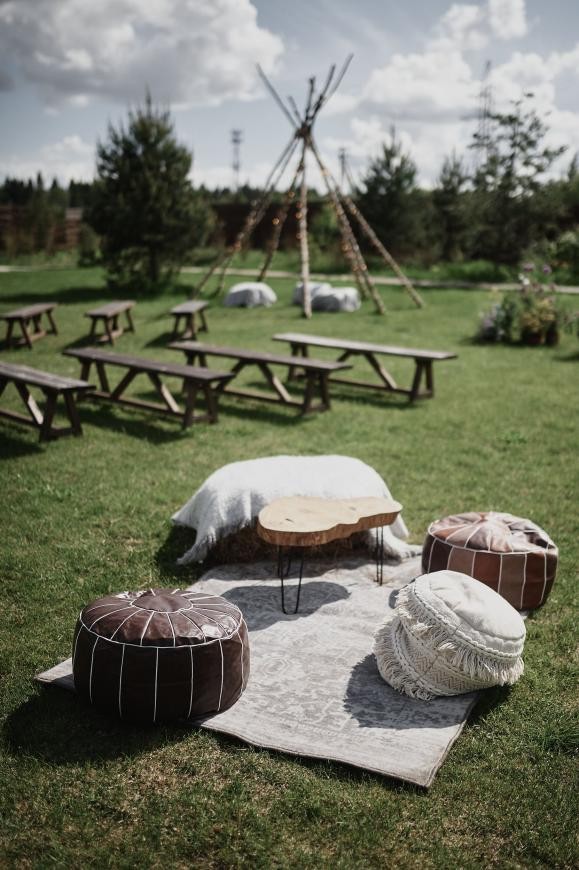
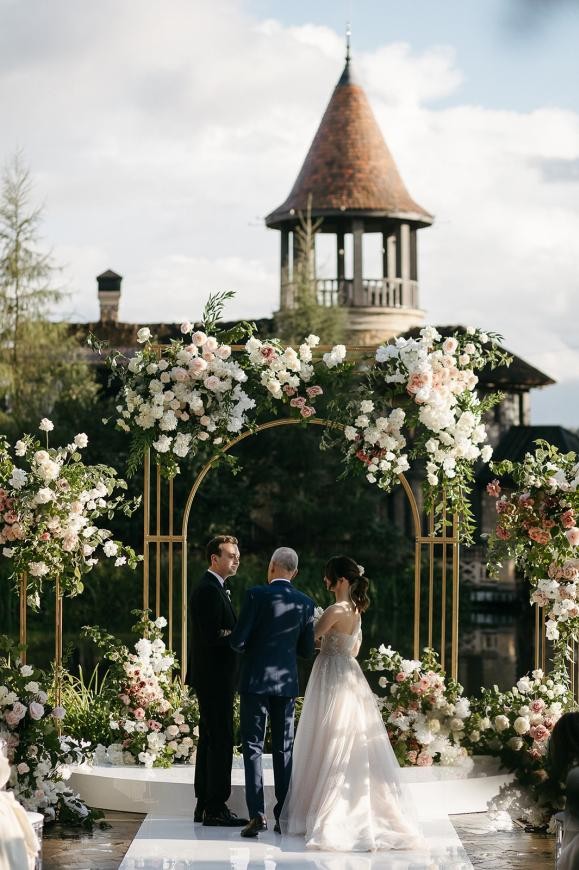
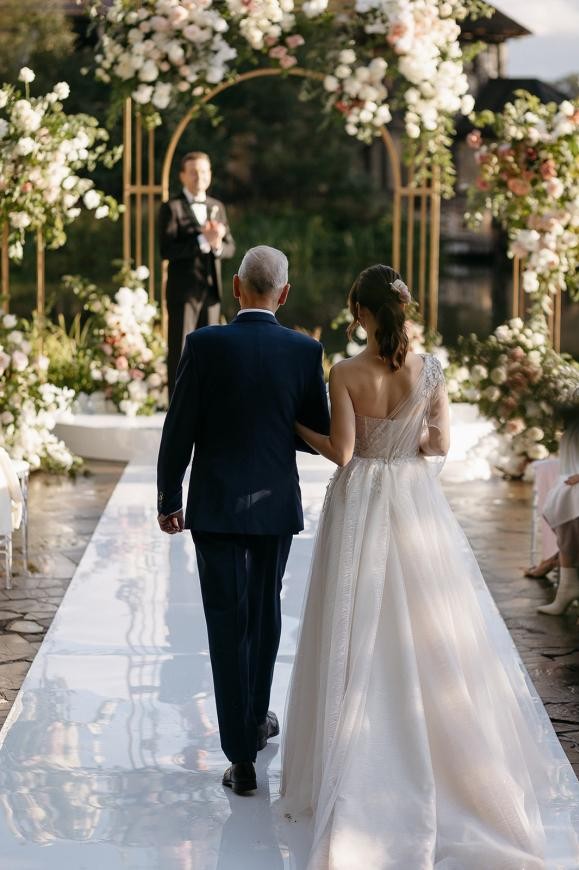



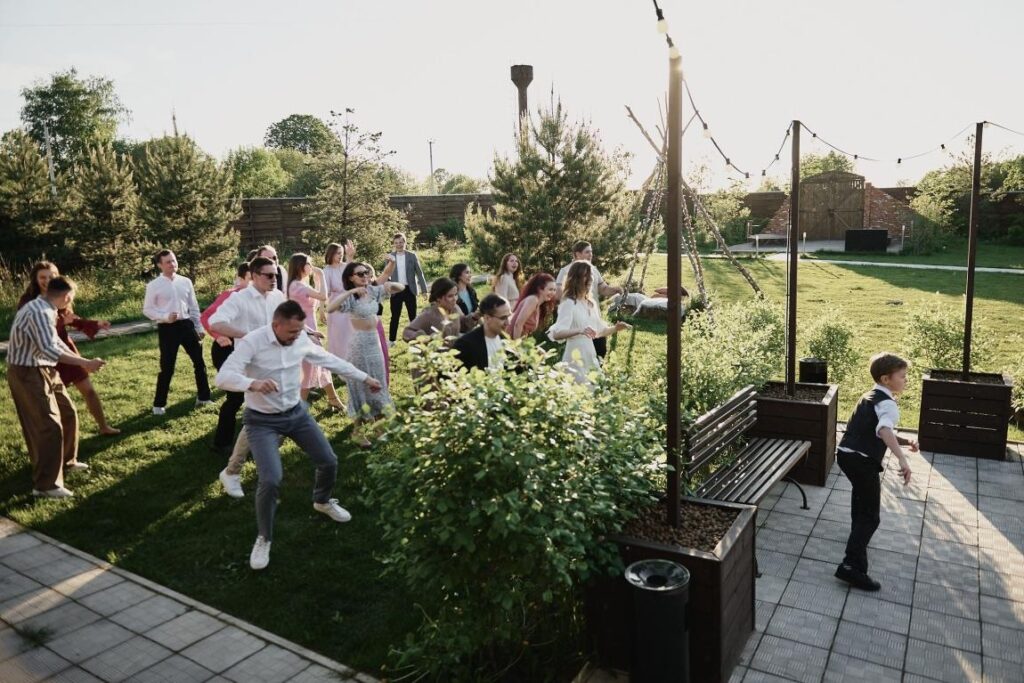
- Comfort Items: Provide tissues, fans, or even umbrellas depending on the season and weather conditions.
- Plan B for Outdoor Weddings: If you’re getting married outdoors, always have a backup plan in case of inclement weather. Consider having a flexible ceremony schedule to move the timing slightly if needed.
- Guest Comfort: Make sure the seating arrangement is spacious enough for guests to be comfortable. Plan for a short break before the ceremony if you have many guests.
- Welcome Refreshments: Offer a welcome drink or snack while guests settle into their seats before the ceremony begins.
By focusing on personalization, thoughtful planning, and creating a comfortable experience for your guests, your destination wedding ceremony can be an unforgettable moment that reflects you and your partner’s love story.


